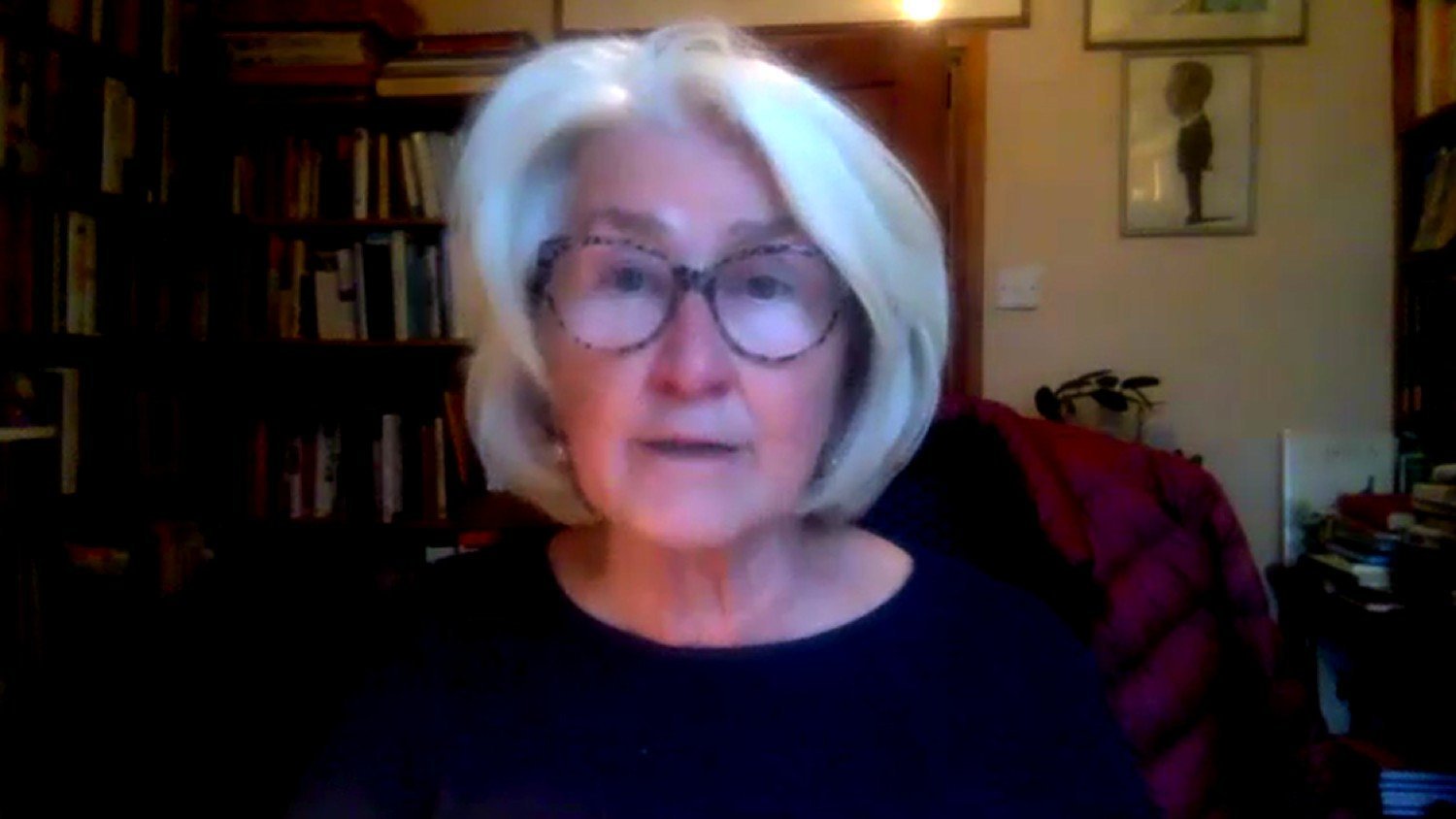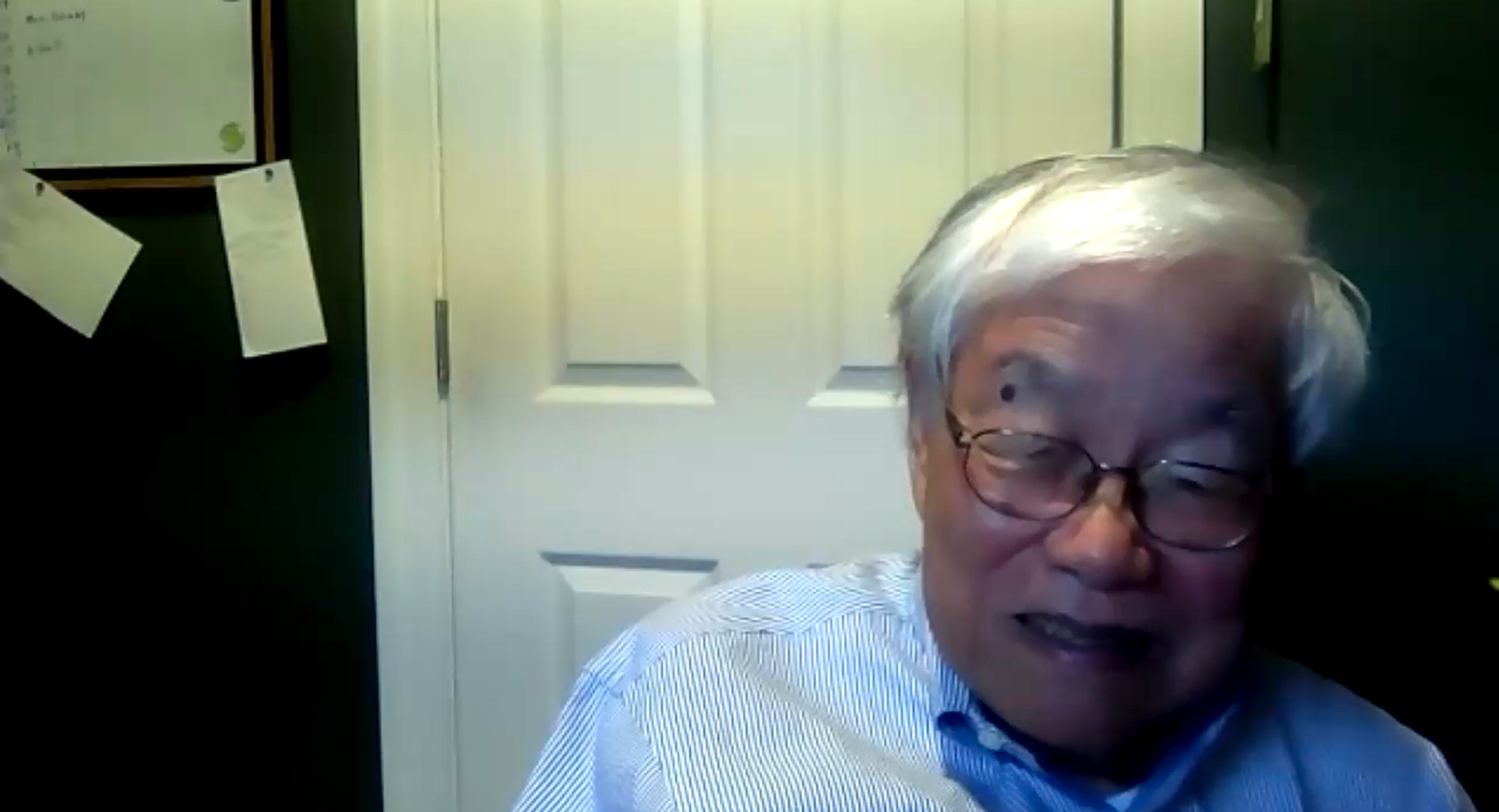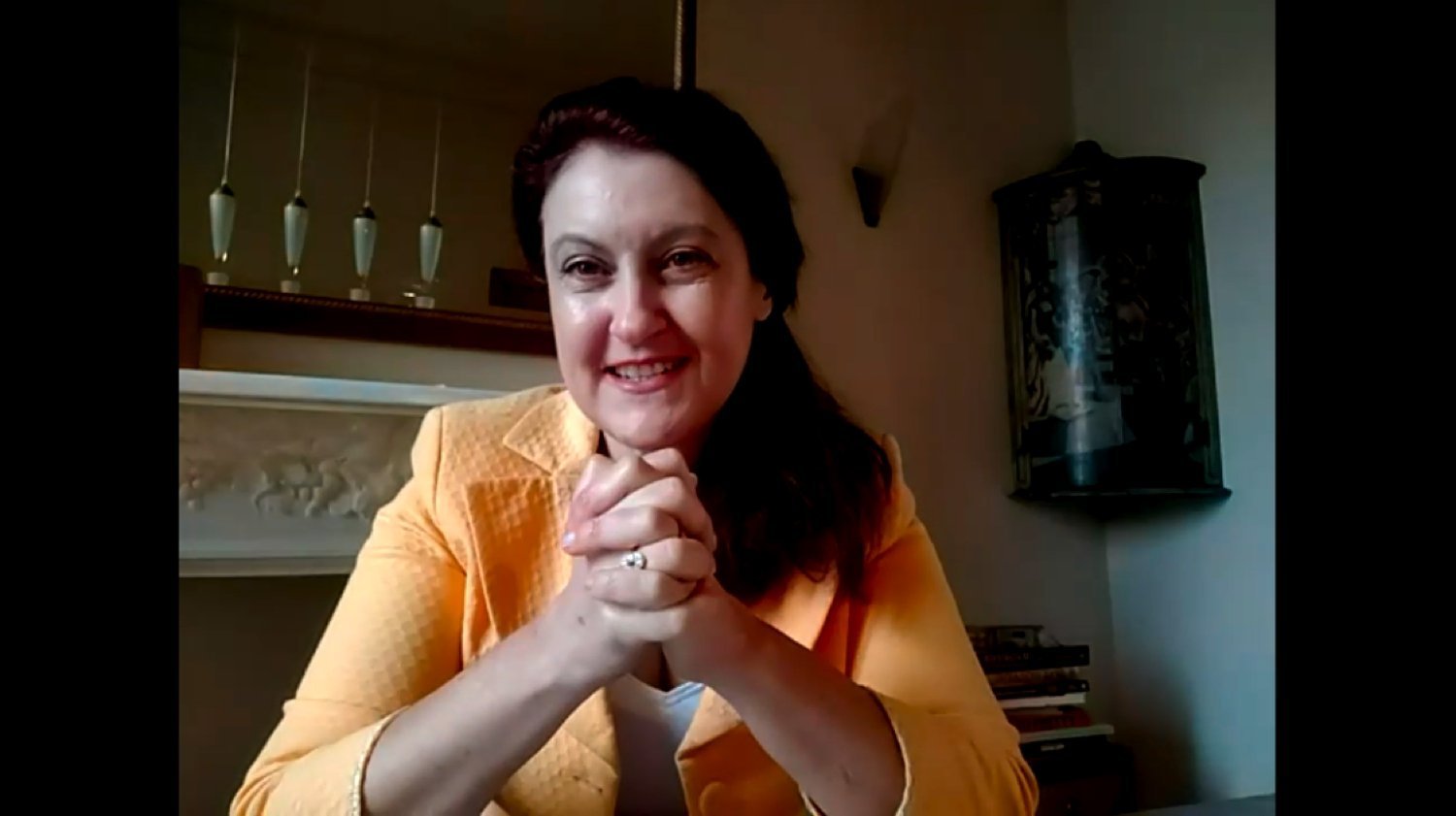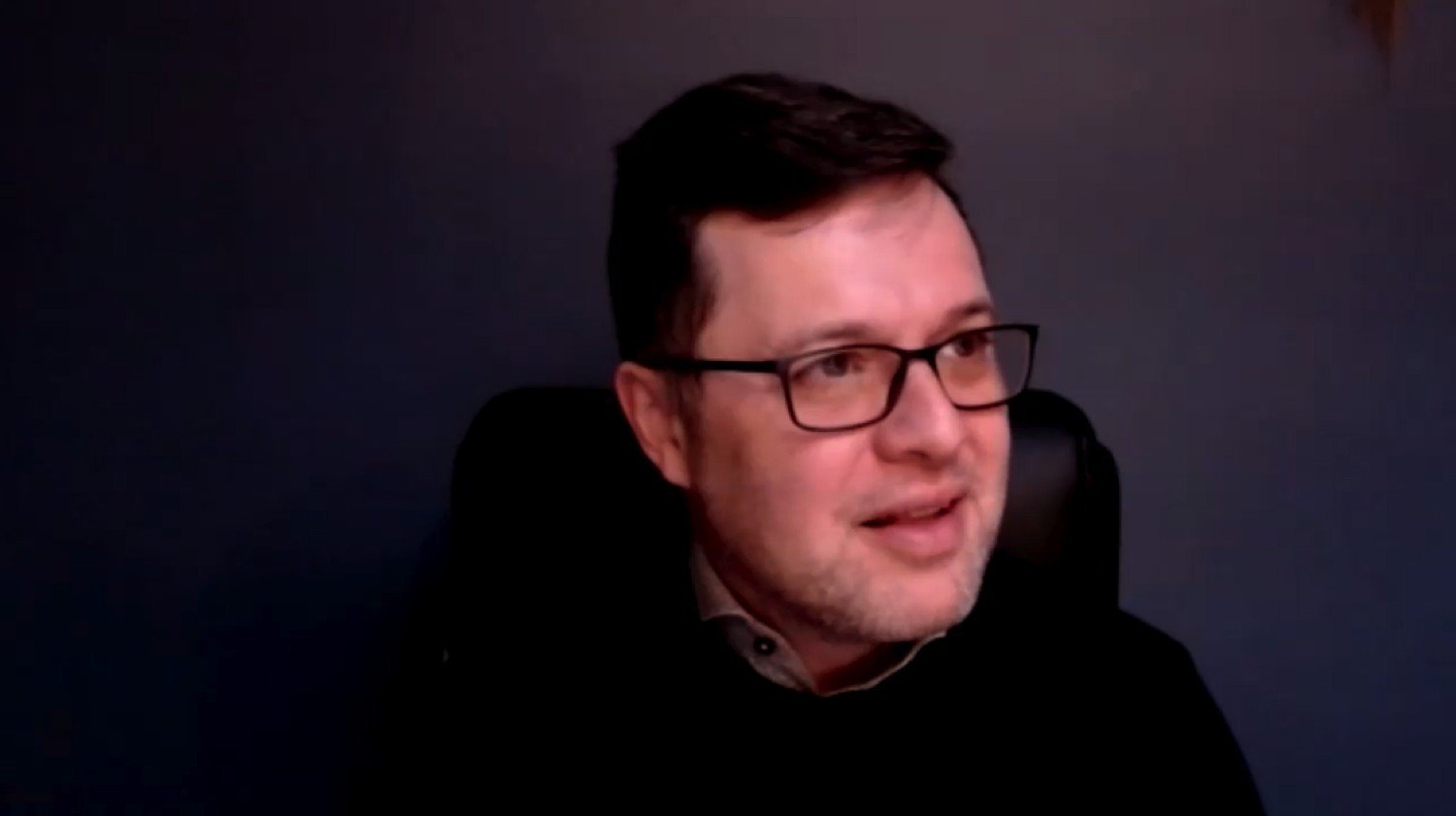Harris Eyre
Australian. Neuroscientist, entrepreneur and author
1. Why does economics matter?
I think economics matters for many reasons. It helps us to understand what makes civilisation and society tick, and once we understand in as much granular detail as possible what makes civilisation and society tick, we hopefully can then start to engineer policies with that similar level of granularity. And one thing that I recognise is that the current economic models really don’t factor in many things that are really critical.
They think about climate issues, little viruses and brain issues as externalities that aren’t central to core economic thinking. And these things need to be considered in a more of a kind of complexity science approach to economics so that economics can matter more. That’s what we want, it’s for economics to matter more. So how do we make these externalities much more centralised into economic thinking? And obviously what I’m interested in is how neuroscience and brain issues can be placed squarely in the centre of new economic thinking.
2. What are the differences between economic science (academic economics) and economic engineering (policymaking)?
I would say at the moment where we stand in the field is to say that economic science is very much focussed on complexity and trying to attain as much understanding of complexity as possible. However, we all know that the complexity of life is almost infinitely complex, so it’s really just something that we’re trying to achieve. But it’s a laudable goal. In contrast to economic science, I would say that economic engineering is much more blunt. It doesn’t have as much fidelity as economic science, and we should always, always be trying to match the level of complexity of economic science with the complexity of policymaking and engineering.
That should always be what we strive for, but we’re currently failing at the moment. So how do we make economic engineering equally as granular and high fidelity? And that’s where I think, again, factoring in issues like climate, little viruses that can pop up out of nowhere and shock the economy, and issues like brain health issues and brain skills and brain capital.
3. What role does economics play in society? Does it serve the common good?
I think that economics is central to society. It’s really central to understanding of how society operates, how it operates well and not well, with values and without values.
And I think that economics is doing reasonably well. I think of the work of someone like Steven Pinker who’s demonstrating that over the arc of history, we are improving the human condition. There’s less war, there’s better life span for people, things like this. We are doing well. And economics, we should thank it for that in many ways.
But there are still a lot of issues that it doesn’t serve us well with. Think of the existing issues that we’re facing that are perhaps going to get worse in the future, I think of climate issues, inequality, the rise of sort of techno-authoritarian states, these are the things that economics is not helping us to perfectly tackle right now. So we do need to do better. And the area that I’m most focussed on is how can economics help us to understand the human brain and how can the human brain influence economic thinking?
We really need to recognise that the human brain is central to the way that we interface with the world and it’s central to our decision making and how we operate in daily life. And there are a lot of brain-related issues right now. Think about the economic effect of brain health disorders - whether it’s autism in kids, depression in adults, Alzheimer’s in older adults - these issues cost the global economy trillions of dollars right now, and worse, even more costly during COVID and projected to get way more costly into the future, potentially into the tens of trillions of dollars a year in lost productivity.
So the modern economy is obviously, unfortunately, in many ways nurturing this disorder. So how do we think about modifying the economy to be less creative about these issues and how do we factor them into economic thinking and then economic engineering and policy making? This is very critical. And then you, of course, think about the brain related issues such as misinformation, propagation of disinformation, propagation around the world and things like that. Science denialism is another one with vaccine hesitancy or anti vaccination interests. These are things that I think can help the economy work more in our good if we understand them better.
[AoE]: It’s a very interesting angle, because there was some research a few years ago by Avner Offer and colleagues at Oxford University on looking at obesity and just the differences between obesity rates in different countries and even within the United States in different states. And to basically try and map onto that, is there an explanation for obesity stemming from the politico-economic system that we have? And generally they appeal to various different disciplines to argue that where you have more risk in society, where there isn’t such a social safety net, for example, then the response when people’s livelihoods are threatened is they tend to eat more. And so there is a health explanation, in fact, which is intertwined within a politico-economic framework and the type of economics that we use. So it’s probably the same for brain health. And they’re also intertwined within the type of system that we operate in.
Absolutely. And reminds me of the paper that I read last night, which is about this new field of dignity neuroscience, which is looking at what is the effect of human rights on the brain. And if you have human rights, and perhaps we could broaden this out to, say, a more collectivist or nurturing economy, then you have better brain health. You have a stronger brain, you have thicker parts of the brain, you have a thicker parts of the brain for executive function, but then if you don’t have universal human rights, so you have infringements or you have an economic system that is overstressing people, causing them some kind of fear or whatnot, that can hyper-activate the limbic system, the emotional system. So if we can think about this dignity neuroscience framework, we can start to think about how do we tune our economic model to be better for our brains? How do we tune the economic model to look after the good parts of the brain and sort of quieting down the negative parts of the brain that are associated with fear and mistrust and all these sorts of things.
And arguably, we’re living in a world which is perpetuating indignity neuroscience on our brains. And how do we bring it back to dignity neuroscience? That’s the golden question that we need to understand. And I guess what we’re trying to understand through the neuroscience inspired policy initiative.
4. Economics provides answers to problems related to markets, efficiency, profits, consumption and economic growth. Does economics do a good job in addressing the other issues people care about: climate change and the wider environment, the role of technology in society, issues of race and class, pandemics, etc.?
I would say that economics has a long way to go to better factor in these important issues. If we take brain issues, as I’ve mentioned before, brain issues are considered really as an externality.
So how do we bring them really into the centre of economic thinking? And there are a couple of points here: we are trying to conceptualise to do this, to bring brain issues square into the centre of economic thinking. We’ve conceptualised this model of brain capital. Brain capital is brain health and brain skills and brain economy. The brain economy is the economy which is increasingly knowledge intense, where cerebral skills, brain skills are increasingly paramount to stay engaged in the economy and engaged in the workforce.
The brain economy is an economy where brain health disorders are a big deal now and going to be increasingly burdensome in society. And the brain economy is an economy where we need to have resilience, increasingly higher and higher levels of resilience to cope with coming shocks which are highly predicted in our society in the future, such as climate shocks, future financial shocks, et cetera. So that’s the brain economy. Brain health, as we describe it, is really the absence of disease.
It’s the presence of neuronal health, brain health and the absence of disorders like ADHD, depression, Alzheimer’s disease. And then brain skills are skills which are most paramount to coping and flourishing in modern society: resilience, adaptability, creativity. So we’ve brought brain capital to the fore, to bring it into the centre of economic thinking. And what this means is that we can start to think about all sectors of society, what could policies be that boost brain capital, whether it’s in health care, social services, Internet/telecoms, you name it.
We’re interested in thinking about policies which promote brain capital, but then also interested in thinking about approaches to investing in brand capital, which can be conventional with government grants, but unconventional new-age approaches like venture capital, sovereign bonds that are nuanced and specific to brain health, different thematic types of ETFs. All of these need to be considered for ways of boosting brain capital, because if we’re going to boost brain capital, then it needs to really be thought about comprehensively.
And also we’re developing a brain capital index to try to track and monitor brain capital over time so that we can understand if it’s getting better or getting worse. And so this is a long way of saying that economics doesn’t factor in these issues right now, and we’re working to try to do this. And hopefully what this will mean is that we will have less brain based issues in the long run. We’ll have less misinformation propagation on the Internet, we’ll have less science denialism, we’ll have more interest and respect for climate change, more interest and respect for the science of pandemics and vaccination development, and less general misery. So this hopefully will start to calibrate economics to factor this in more.
5. As we live in an age of economics and economists – in which economic developments feature prominently in our lives and economists have major influence over a wide range of policy and people – should economists be held accountable for their advice?
I think that, yes, economists should be held accountable for their advice, but the challenge is how to achieve that. So perhaps one thing that we can achieve in holding economists accountable is let’s hold them accountable to working in multidisciplinary teams.
So to make sure that if an economist is trying to providing guidance or analytics in a certain area, let’s make sure that they are engaged with and accountable to working with all the stakeholders that are relevant to that piece of work so that economists are understanding at a deep empathy level and anthropological level, what are they getting themselves into? How are the different stakeholders thinking? What are the stakeholders concerned about? Let’s really try to steep economists and economics in this multidisciplinarity.
And I do like this framing of this model of integrative economics that the OECD New Approaches to Economic Challenges has developed and has been promoting because this is all about multidisciplinarity in economics.
So let’s hold economists accountable to get out of their silo, get out of their ivory tower, get out of their office and get into engaging with the relevant stakeholders. Hopefully this will help them to develop a more grounded, stakeholder-focussed work product.
6. Does economics explain Capitalism? How would you define Capitalism?
So I would define capitalism in fairly unremarkable terms: capitalism nowadays is really the pursuit of wealth in monetary terms, and it’s the pursuit of maximal free marketism. And I do not think that is ideal for society and civilisation in the long run. Its very short term focussed very much focussed on on monetary issues.
And this is really only one piece of value that we should be thinking about. We should really be broadening out capitalism to think about what are other areas of value that we care about, who are the other stakeholders that we care about other than just shareholders that are getting monetary returns. That’s what I’m most interested in and where I think capitalism needs to be tuned up, which is obviously a challenge, but something that we need to continue to pursue. Broaden out, what does capitalism mean to relevant stakeholders?
7. No human system to date has so far been able to endure indefinitely - not ancient Egypt or Rome, not Feudal China or Europe, not the USSR. What about global Capitalism: can it survive in its current form?
No, I don’t think it can. I think that capitalism, as it is now, has got us into quite the pickle. We have climate issues that are increasingly significant, we’ve seen that in the last few months in various parts of the world. We have despair, economic despair for many parts of the United States and many parts of the world. People are in despair, they feel like they’re being left behind by the economy.
That’s not good. These people become very desperate and it’s not good for them and not good for the communities that live in. The economy has got us lots of political turmoil, political division. We have lots of threats from techno-authoritarian regimes around the world. So we’re in quite a situation and this cannot go on. We need to think about a different way and develop a different model, a different operating system for the world.
8. Is Capitalism, or whatever we should call the current system, the best one to serve the needs of humanity, or can we imagine another one?
I think we can imagine another approach, and if we take the premise that the brain is paramount to how we operate in the world, how we interact with the world, how we make decisions, et cetera, can we think about a form of stakeholder capitalism which focuses on brain issues. When we think about stakeholder capitalism, which, as we know, is this approach to broadening out stakeholders that we care about in the economy, not just thinking about shareholders and monetary returns, but thinking about the environment, thinking about employees of companies, thinking about citizens, civic society, et cetera. Can we start with stakeholder capitalism and then can we tune it towards issues of the brain that we think are so central? So when we develop products and services, can we assess these products and services in a way, what are they doing good for the brain and let’s optimise what they’re doing that’s good for the brain, and how can we mitigate what’s bad for the brain.
Let’s take plastics. We don’t know what plastics are doing to brain because the current capitalist system, the current economic thinking, doesn’t really care about that so much, it doesn’t track and hold itself accountable to this, but there is an emerging literature around the effect of micro plastics on our brains, and it’s a totally new area of science that needs to be rapidly understood. And if it is determined that micro plastics, which we know can get into the brains of rodents in neuroscience studies and certainly in fish in the ocean, if we determine that micro plastics perhaps are getting into the human brain, well, we need to do something about that.
We need to recognise that product of that certain type of plastic is very toxic and hazardous to the brain. And it’s potentially having all sorts of negative first, second and third order effects on our brains and on our economy. It can affect our ability to think, disease progression et cetera. It could be accelerating these issues. So that’s one example of where a brain based stakeholder capitalism could help us to think through the effect of products and services on our brains.
And then companies, how do we make sure that companies are protecting the brain health of their employees? And I’ve been glad to see organisations like SASB and ISO are developing standards for human capital and brain capital of employees of corporations. If we can start to sort of impose maybe a little bit of light regulation or at least guidelines for companies, maybe these companies can start to look after their employees more.
And then there are other examples of investment funds, there’s trillions of dollars of capital in the world, how do we try to help to ensure that that capital that’s being invested around the world is being channelled in a way that is good for the human brain, that is beneficial to the human brain. Can we work with organisations like the PRI, the Principles for Responsible Investing, to develop standards and guidelines, to ensure that when an investment is made that is made in a company that is having a beneficial effect on the brains of their employees, the products and services they generate can have a beneficial effect on the brain.
So these are some of the things that I think we could do if we’re conceptualising a brain focussed, pro-brain version of stakeholder capitalism.
[AoE]: Thanks, Harris, and your plastic example is a good example of what we’re talking about here, because it’s estimated that we consume about 250 grams of plastic every year, which is a heap dinner plates worth of plastic. And we take consumption and production decisions as largely being independent of what those decisions will do to us, to our health. And again, because, as you said, these are externalities, but actually probably shapes our health and our behaviour in ways that we haven’t really considered. And so the big lesson for me is that we operate within a physical environment and a social environment, and we need to make decisions that incorporate the realities and the complexities of those systems in which we operate. So thank you so much, you’ve really helped. Is there anything else you want to add, any general statements or before we close up?
Well, let me just make a comment. I think that the effect of the neurotoxic plastics on the brain, that is an area that needs urgent scientific research to understand what is it doing to the human brain. Because we understand what it’s doing to fish brains and rodent brains, and it’s very concerning. So let’s quickly get into understanding what it means to the human brain, and there are a couple of groups in the world working on that.
I think a more advanced understanding that we have of toxic pollutants on the brain is air pollution, right? Where is it coming from? Well, it’s coming from products like cars and other types of mechanised vehicles and mechanised infrastructure in the world. Air pollution has a very bad effect on the brain. Air pollution is known now to affect particularly the developing brain, up to the age of five years it has a negative effect on brain development, the structure and architecture of the brain.
But we also know that it is associated with the more rapid development of cognitive decline in older age. So air pollution is one example of this, if you don’t think about, say, the building and marketing of cars and mechanised vehicles, and then you don’t think about the effect of the exhaust on the human brain, then you’re just going to keep producing more combustion engines and it’s going to have worse effects on the human brain, but if we were to think about the impact of air pollution from those products like cars, then we wouldn’t have to be producing them quite as much.
So if we can start to tune our thinking around neuroscience, I think we can get a lot of value for society.






